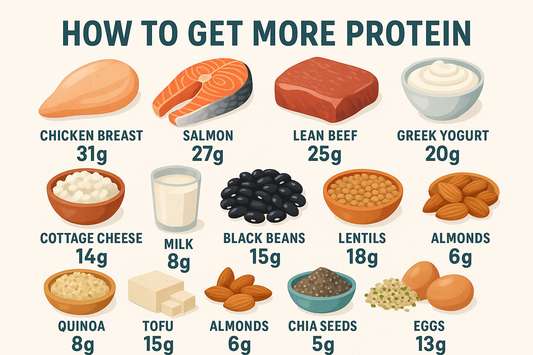As an athlete, you know that there is always room for improvement in your performance. Creatine monohydrate supplementation is one of the most popular and widely researched supplements that can help you enhance your athletic performance. Whether you’re a bodybuilder, a sprinter, or a football player, creatine monohydrate can help you achieve your goals. But with so many different types of creatine on the market, it can be difficult to know which one to choose.
In this ultimate guide, we’ll cover everything you need to know about creatine monohydrate supplementation, including what it is, how it works, the benefits and drawbacks of using it, and how to properly cycle and dose it. So, if you’re looking to improve your athletic performance and take your training to the next level, this guide is for you.
What is creatine monohydrate?
Creatine monohydrate is a popular dietary supplement used by many athletes to enhance their physical performance. It is a naturally occurring substance that can be found in animal products such as meat and fish.
Creatine is also produced in the liver, pancreas, and kidneys, and is then transported to the muscles through the bloodstream. It is stored in the muscles as creatine phosphate, which is used as a source of energy during high-intensity activities such as weightlifting, sprinting, and jumping.
Creatine monohydrate supplements are a concentrated form of creatine that can be taken in powder or pill form. When taken in the recommended dosage, creatine monohydrate can help athletes improve their strength, power, and endurance.
It can also aid in muscle recovery and growth by increasing the amount of water retained in the muscles, which helps to promote protein synthesis. It is important to note that while creatine monohydrate is generally safe for healthy adults, it is always recommended to consult with a healthcare professional before starting any new supplement regimen.

How does creatine monohydrate work?
Creatine monohydrate is a popular dietary supplement that is commonly used by athletes and gym-goers to enhance their athletic performance. Creatine is a naturally occurring compound that is produced by the body in small amounts and It is found in high concentrations in skeletal muscle tissue, where it serves as a source of energy during high-intensity exercise.
Supplementing with creatine monohydrate can increase the amount of creatine in the muscles, which can have a positive on impact on the muscle and lead to improved performance and muscle growth.
When you take creatine monohydrate, it gets absorbed into your bloodstream and ultimately ends up in your muscles. Once it is in your muscles, it is converted into phosphocreatine, which serves as a high-energy reservoir that can be used to quickly produce ATP (adenosine triphosphate) during short bursts of high-intensity exercise. This increase in available energy can lead to improved performance during activities such as weightlifting, sprinting, and jumping.
Creatine monohydrate supplementation has also been shown to increase muscle mass and strength over time. This is due to the fact that creatine can increase the water content of muscle cells, which can lead to increased protein synthesis and muscle growth. Additionally, creatine has been shown to reduce muscle breakdown, which can further enhance muscle growth and recovery.
Overall, creatine monohydrate supplementation is a safe and effective way for athletes and gym-goers to improve their athletic performance and muscle growth. However, it is important to consult with a healthcare professional before starting any new supplement regimen. Additionally, it is important to follow the recommended dosage and stay properly hydrated while supplementing with creatine monohydrate.
The benefits and drawbacks of using creatine monohydrate
Creatine monohydrate is a popular supplement among athletes looking to improve their performance. The main benefit of using creatine monohydrate is that it helps to increase the body’s production of ATP. ATP is the primary energy source for muscle contractions during exercise, so increasing its availability can help to improve athletic performance.
Creatine monohydrate has been shown to be effective in improving strength, power, and endurance during high-intensity exercise. However, there are some potential drawbacks to using creatine monohydrate. One of the most significant concerns is the potential for dehydration. Creatine monohydrate works by drawing water into the muscles, which can lead to dehydration if not properly managed. It's essential to drink plenty of water when taking creatine monohydrate to avoid dehydration.
Another potential drawback is the risk of gastrointestinal side effects, such as cramps, bloating, and diarrhea. These side effects can be caused by the high dose of creatine that is often required to achieve the desired benefit. Overall, the benefits of creatine monohydrate supplementation for athletes can be significant. However, it's important to weigh the potential drawbacks against the benefits and to consult with a healthcare professional before beginning supplementation. This can help to ensure that you are using the supplement safely and effectively.

How to properly cycle and dose creatine monohydrate
One of the most important aspects of creatine monohydrate supplementation is proper cycling and dosing. When it comes to cycling, it is recommended to take creatine for a period of 8 to 12 weeks, followed by a break of 4 to 6 weeks before starting a new cycle. This break is necessary to allow your body to naturally recover and avoid any potential negative effects of long-term creatine use. When it comes to dosing, the typical recommended daily dose of creatine monohydrate is 5 grams per day.
This can be taken all at once or split into two doses of 2.5 grams each. It is important to always follow the manufacturer's instructions and not exceed the recommended daily dose. It is also important to note that creatine monohydrate supplementation is most effective when combined with a proper diet and exercise routine. Adequate protein intake is necessary to support muscle growth and recovery, and creatine can help to enhance the effects of resistance training. In summary, proper cycling and dosing of creatine monohydrate is essential for athletes looking to maximize their performance and achieve their fitness goals.
By following recommended guidelines and combining creatine supplementation with a healthy lifestyle, athletes can unlock the full potential of this powerful supplement.







